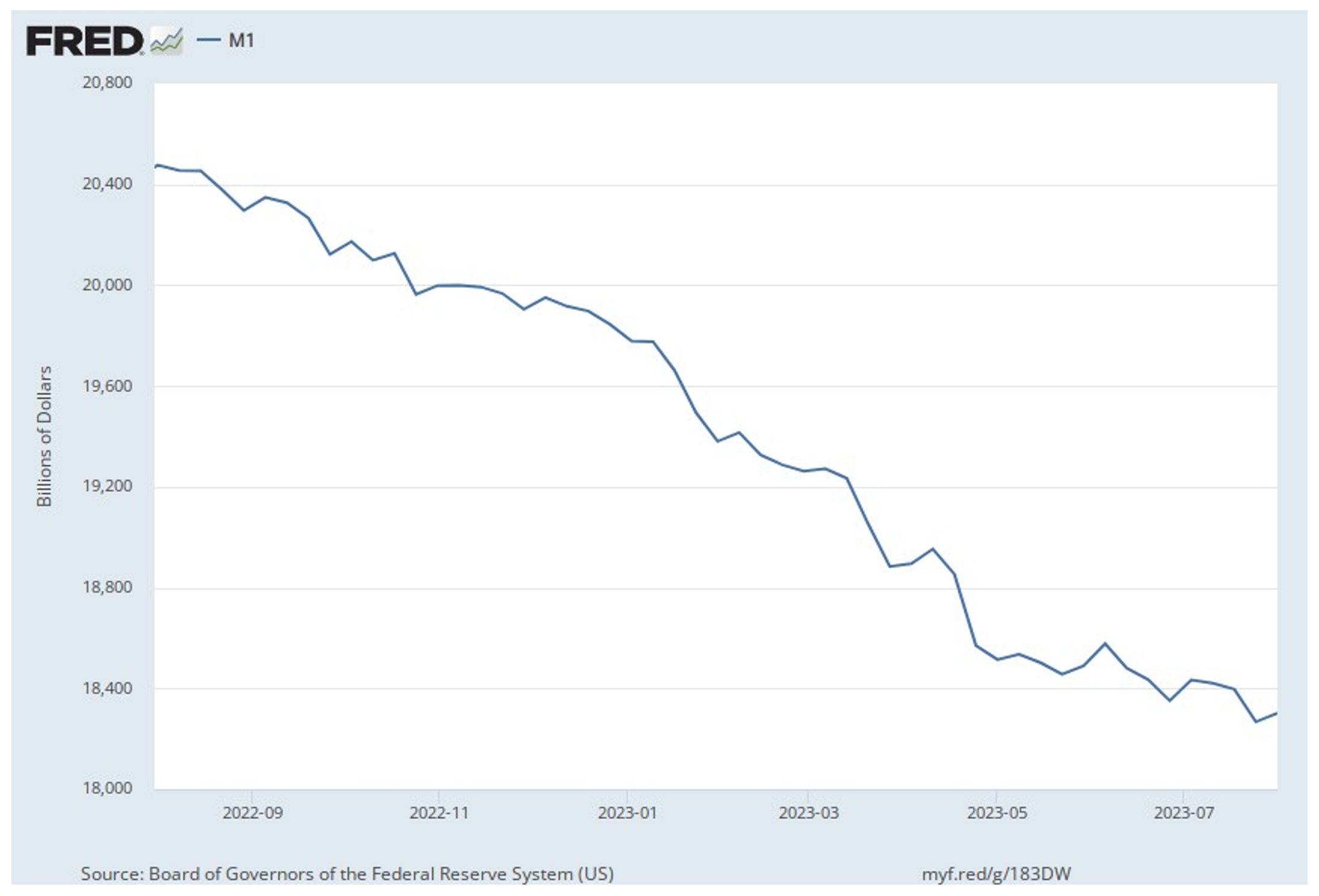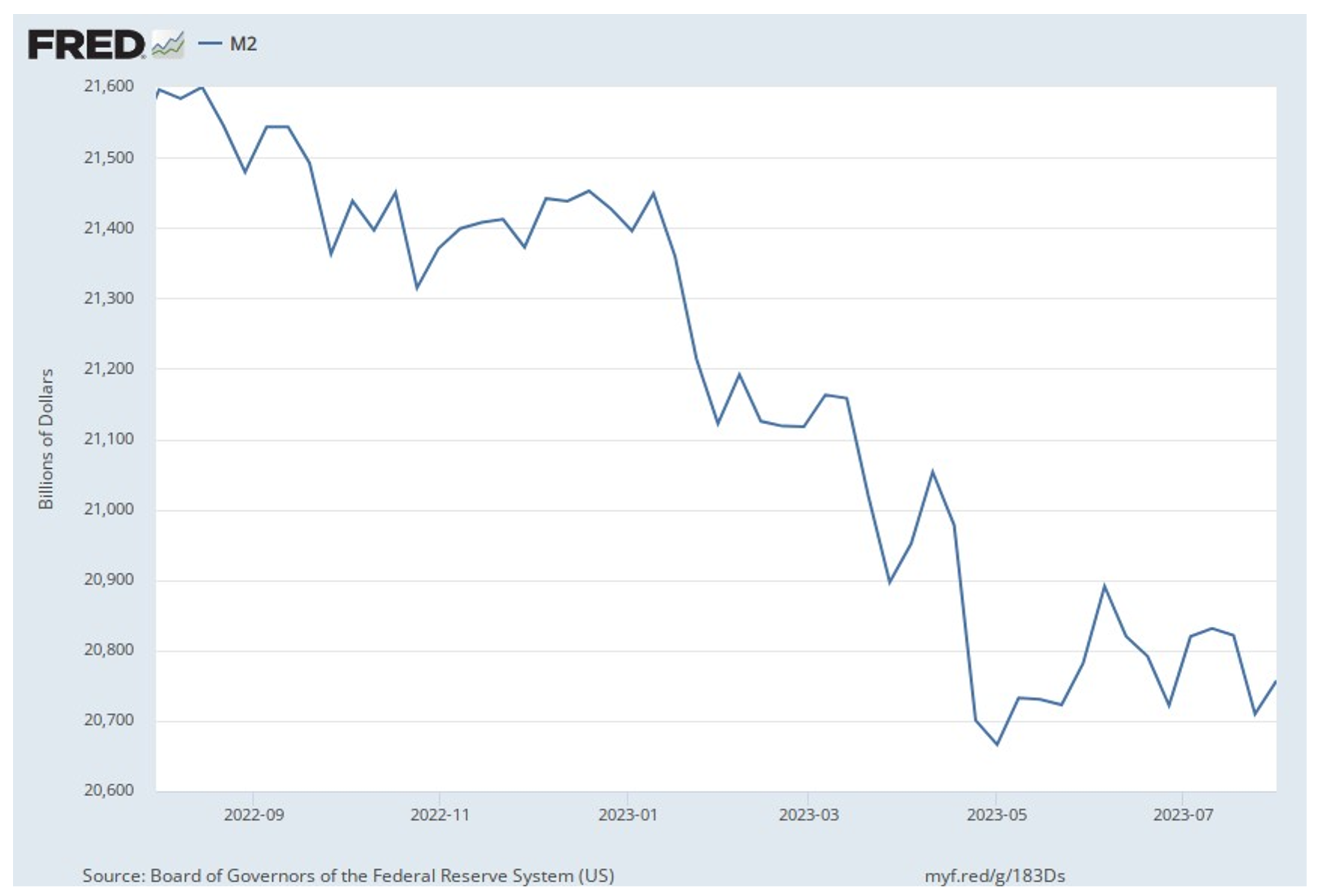You are viewing our site as a Broker, Switch Your View:
Agent | Broker Reset Filters to Default Back to ListConsumer Savings Are Running Out. What Does That Mean for Real Estate?
August 24 2023
Real estate values have been holding the realm of suspended values. Despite the incredible rise in interest rates, home prices have remained resilient. Most homeowners are locked in a low mortgage rate, demonstrating that people buy payments and not for the price of a home. This has reduced the turnover of homes, stifling the move-up-buyer and keeping inventory levels low. Homebuyers have no choice but to step up to the higher home prices today – but this all may change.
One of my favorite economists in real estate, Elliot Eisenberg the Bowtie Economist, wrote that:
During the Covid pandemic, Americans saved an additional $2.1 trillion above and beyond normal savings because of stimulus checks, an inability to travel and so on. Since August 2021, $1.9 trillion of that amount has been spent suggesting there remains just $200 billion. At a drawdown rate of $100 billion/month, the rate that has prevailed since mid-2022, the excess will be fully exhausted during 23Q3.

He has a great blog that sends economic snapshots like this almost every day, and he is an amazing speaker. You can subscribe to the blog here.

As I absorbed this snapshot about consumer savings, it shocked me into the belief that America is in for an economic drop this fall and winter. The flip side of savings is debt. On August 16, Eisenberg indicated that debt was up $.4 trillion in the second quarter; 70% of that household debt is in the home. (Sidebar: 9.2% of the debt is in student loans – rather than canceling student loans on the backs of taxpayers, I hope our government taps the endowments of universities to pay for loan forgiveness. You should suggest this to your representatives.)
Typically, when consumers lack money in their checking account, retail takes a hit. On August 15, Eisenberg noted that retail has faced six months of decline. Retail is 38% of all consumer spending.
With all of this bad news, one would think that the mortgage delinquency rate would be going up. To the contrary, Eisenberg writes on August 14 that delinquency rates are down to 3.37% – the lowest since record keeping in 1979. Foreclosure rate is .53%. Homeowners have a ton of equity in their homes.
You may wonder, what is happening to credit and credit cards? Well, the U.S. credit rating was dropped from AAA to AA+. I think that this is the first time in history (Eisenberg, Aug. 1). Government spending is up 2.4%, but we have a looming government shutdown with the budget battle in the months ahead. Credit card balances went past the $1 trillion mark. They rose nearly 5% between first and second quarters of 2023.
 For me, the combination of this data indicates a negative economic outlook for America and housing. Housing is already down between 20% and 35% in most major cities – indicating that real estate is definitely in a recession. The only way to reverse this negative trend is to ease interest rates. Unfortunately, the Federal Reserve is still fighting inflation and likely to hold interest rates, or worse, raise them during their upcoming meetings in Jackson Hole. Our hope is that WAV Group's Mark McLaughlin, a resident of Jackson Hole, will get some good insights. The meetings start August 24.
For me, the combination of this data indicates a negative economic outlook for America and housing. Housing is already down between 20% and 35% in most major cities – indicating that real estate is definitely in a recession. The only way to reverse this negative trend is to ease interest rates. Unfortunately, the Federal Reserve is still fighting inflation and likely to hold interest rates, or worse, raise them during their upcoming meetings in Jackson Hole. Our hope is that WAV Group's Mark McLaughlin, a resident of Jackson Hole, will get some good insights. The meetings start August 24.
This is going to continue to put pressure on America's public real estate brokerages. Zillow is -$.73 earnings per share (EPS). Compass – $1.06 EPS, Anywhere -$4.45 EPS, Redfin -$2.07, Elliman -$.51, RE/MAX $.01, and EXP $.05. I would look for RE/MAX and EXP to head into negative territory with the others in the third and fourth quarters, probably staying there until we get some signal on the outcome of the elections.
Our brokerage guidance is that you should maintain a hold on spending, or cut spending. This is an opportune time for brokerage consolidation. Talk to other brokers in the market about how you can combine offices through a merger to cut losses. The WAV Group M&A division can help identify merger candidates. Contact Victor Lund or George Slusser.
If you want to learn the process of M&A on your own, buy our book, Acquiring More Profit, and its companion M&A workbook. The workbook has spreadsheets for financials, NDA, offer letters, confidentiality agreements, etc. It's a great read and will put you on the right path. The digital edition is the best value!
Click here to purchase your downloadable copy now!
If you would prefer the physical printed version, visit Barnes and Noble's site (Amazon is sold out).
To view the original article, visit the WAV Group blog.









